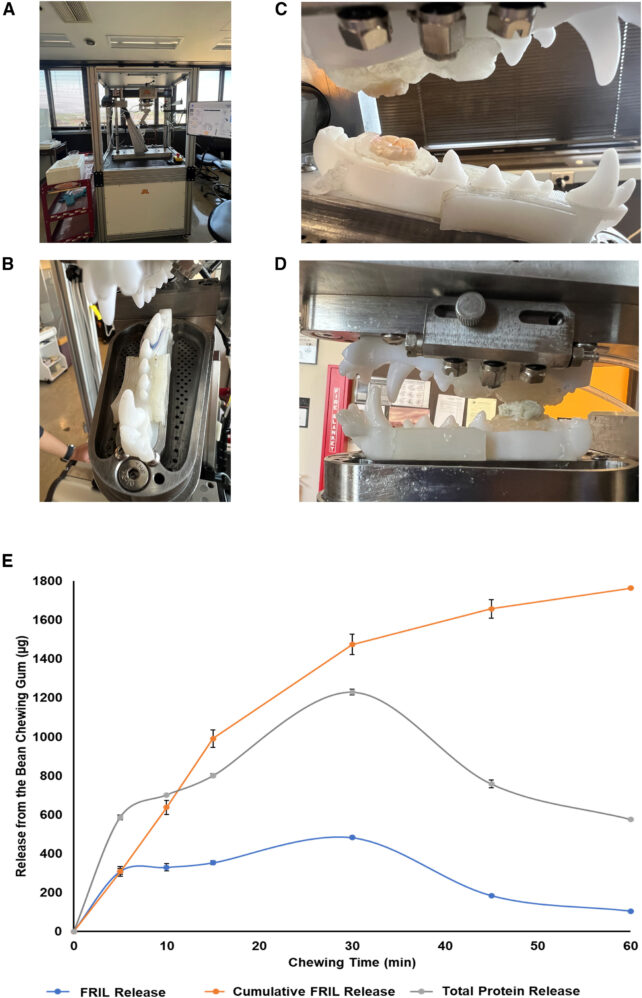A special type of chewing gum can 'trap' and neutralize some influenza and herpes viruses, according to new experiments from scientists in the US and Finland.
The herpes simplex viruses 1 and 2 (HSV-1/-2) can both cause oral herpes, and despite being one of the most common infections in the world, there are hardly any preventative measures available today to stop the spread.
Some scientists are hopeful that this new anti-viral gum could help fill that gap, especially as research on a herpes vaccine stalls due to a lack of funding. Plus, even if a vaccine is found, there are likely to be breakthrough infections, and chewing gum could help stop those from spreading further.
Current vaccines for influenza, for instance, do not prevent transmission from breakthrough infections, so this gum could be a useful addition for treating orally spread viruses.
The clinical-grade chewy is made from lablab bean powder, ground from the seeds of the Lablab purpureus species, which contain a natural viral trap protein called FRIL.
In experiments using a mechanical mouth, chewing the liquid-soaked gum for 15 minutes released more than 50 percent of the FRIL proteins it contained. Collecting the simulated saliva from this chewing, researchers then tested how well the liquid neutralizes viruses.
Depending on the dose of FRIL to start with, the 'saliva' produced from chewing showed greater than 95 percent neutralization of the H1N1 and H3N2 influenza viruses in the lab.
It also showed up to 75 percent neutralization of the HSV-1 virus and up to 94 percent of the HSV-2 virus – the two most common herpes viruses out there.
Neutralization means that the virus is less likely to infect cells and replicate itself, which would theoretically lead to a reduce viral load and lower chances of transmission.
"These observations augur well for evaluating bean gum in human clinical studies to minimize virus infection/transmission," conclude the authors, led by biochemist Henry Daniell from the University of Pennsylvania.

The new study builds on previous experiments, which found that chewing gum containing certain anti-virals can get rid of more than 95 percent of the SARS-CoV-2 virus in mouth swabs or saliva samples, thereby reducing oral transmission of COVID-19.
Scientists are now testing that 'anti-COVID' chewing gum in clinical trials, but in the meantime, researchers are turning to other viruses to see if the solution works there as well.
For instance, another previous study published in 2020 on lablab beans found that FRIL proteins effectively reduced levels of H5N1 and H7N9 – both of which are influenza viruses that can cause flu in humans and birds.
"Controlling transmission of viruses continues to be a major global challenge," says Daniell.
"A broad spectrum antiviral protein (FRIL) present in a natural food product (bean powder) to neutralize not only human flu viruses but also avian (bird) flu is a timely innovation to prevent their infection and transmission."
The approach seems to be most suitable for reducing viral loads in saliva and the throat area, which are two main sites of oral viral transmission.
The US FDA generally considers lablab bean powder to be safe and non-toxic for human use at low enough levels. Whether it proves to be an effective anti-viral in clinical trials is another matter.
The study was published in Molecular Therapy.
